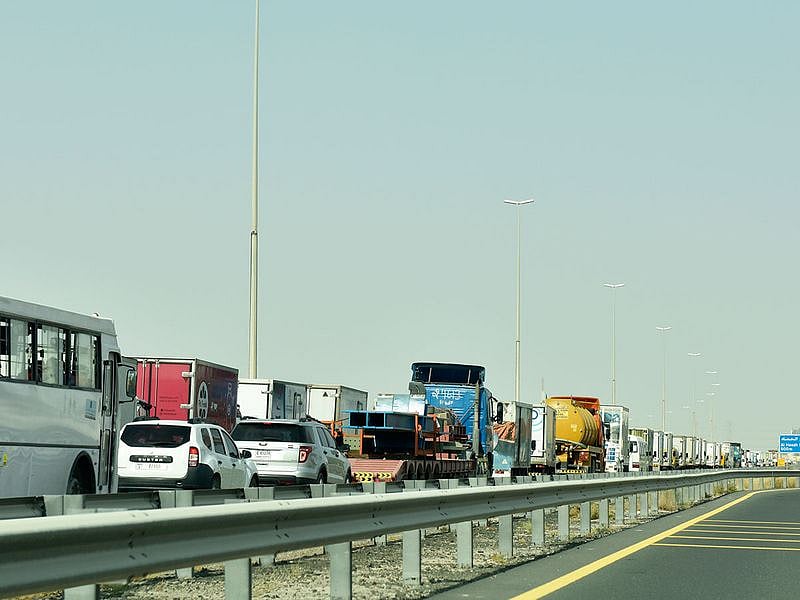Abu Dhabi bans heavy vehicles on key roads starting December 1
The measures are part of a traffic management plan aimed at easing congestion

Abu Dhabi: The Integrated Transport Centre (Abu Dhabi Mobility), part of the Department of Municipalities and Transport, announced that heavy vehicle traffic will be banned on Sheikh Maktoum bin Rashid Road (E11) and Al Raha Beach Road (E10) starting December 1.
The decision also restricts trucks from using Al Rawdah Road in the Mussafah area (E30) during peak hours, from the bridges complex to the truck bridge in both directions.
The measures are part of a traffic management plan aimed at easing congestion on high-density corridors, improving road safety, and strengthening the efficiency of Abu Dhabi’s transport network. Officials said the restrictions are intended to reduce pressure on major routes and improve the daily commute for motorists, particularly during peak periods.
As part of the new regulations, Abu Dhabi Mobility designated Al Fayah-Seih Shuaib Road (E75) and Al Haffar Road as alternative routes for heavy vehicles. Both roads have been prepared to accommodate truck traffic safely, allowing commercial transport and goods movement to continue without affecting mobility within the city.
The centre added that trucks will be barred from using Al Rawdah Road in Mussafah’s industrial zone during morning and evening peak hours, from the bridges complex to the Sheikh Khalifa bin Zayed International Road intersection.
Traffic will instead be rerouted via the ICAD Bridge to avoid interference with light vehicles and maintain smoother flow in the area.
Engineer Abdullah Hamad Al Aryani, Acting Executive Director of the Planning and Strategic Affairs Sector at the ITC, said the decision reflects the centre’s commitment to enhancing road network efficiency and advancing safety standards.
He noted that the initiative aligns with Abu Dhabi’s Vision 2030, which aims to develop an integrated and sustainable transport system that supports the emirate’s long-term development.
Al Aryani added that the ITC continues to implement targeted initiatives to improve traffic flow and create a safer, more environmentally friendly mobility environment.
Restricting heavy vehicles on key corridors, he said, is part of a studied approach that balances road safety priorities with the needs of commercial and service transport.
The ITC urged heavy-vehicle drivers and transport companies to abide by the new rules and follow all traffic signs posted on affected routes.
Sign up for the Daily Briefing
Get the latest news and updates straight to your inbox
Network Links
GN StoreDownload our app
© Al Nisr Publishing LLC 2026. All rights reserved.